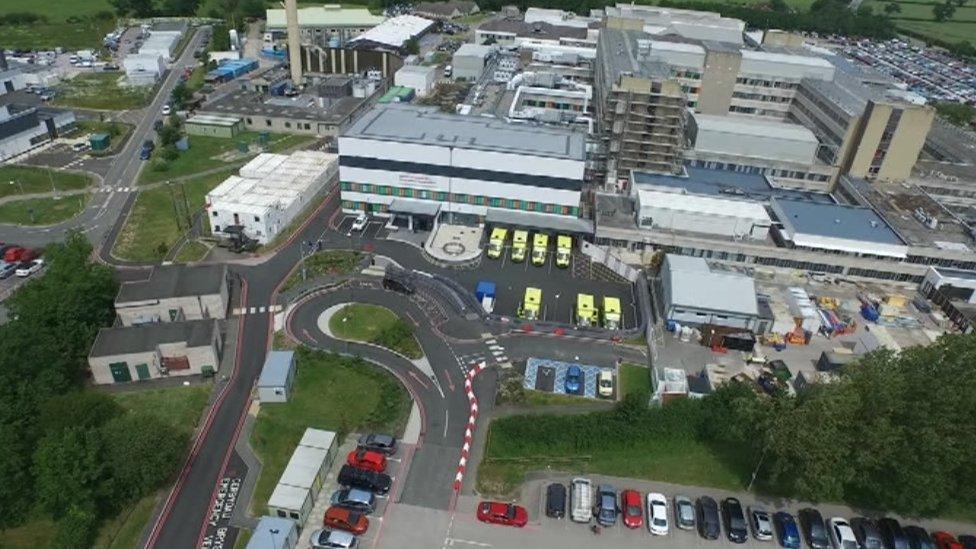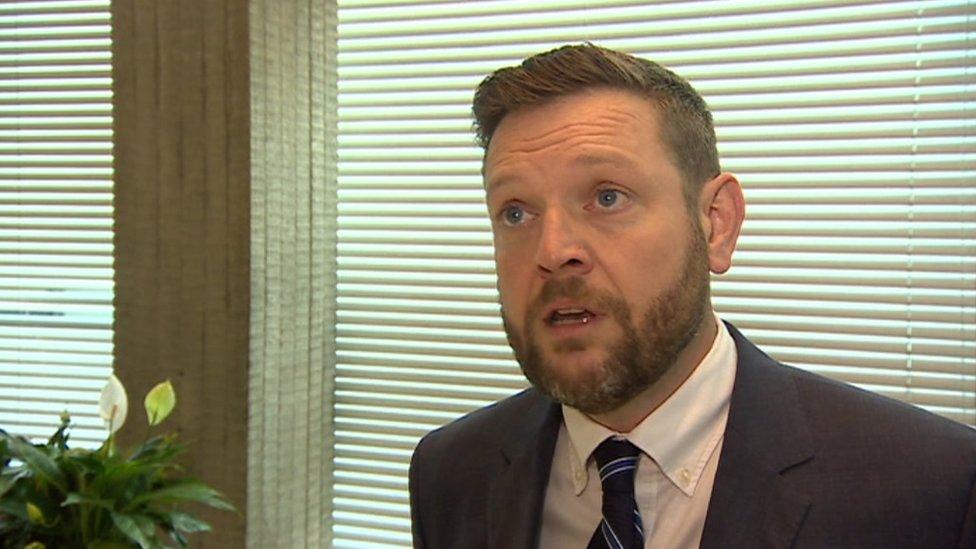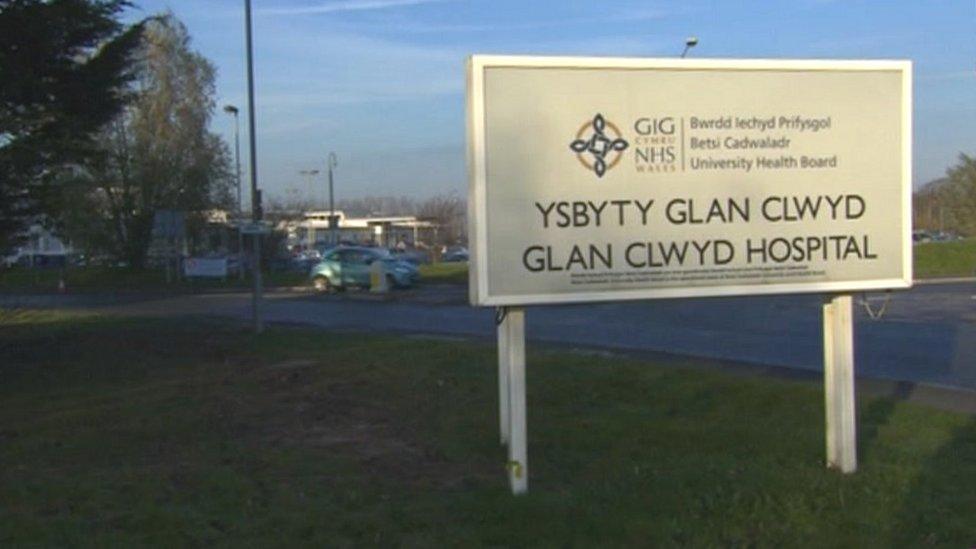Glan Clwyd: 'Systemic failure' in cancer patient's care
- Published

A patient with potentially life-threatening cancer waited more than four months for his first treatment after a hospital showed a "disturbing lack of urgency", an investigation has found.
Public Services Ombudsman Nick Bennett said there was a "systemic failure" by consultants at Glan Clwyd Hospital in Bodelwyddan, Denbighshire, to recognise and respond to the patient's condition.
It is the third Ombudsman report on the hospital in the past two months.
The health board has apologised.
The patient, who is still alive and referred to as Mr D, was diagnosed with prostate cancer in July 2014.
Despite Welsh Government guidelines stating patients newly diagnosed with cancer should start treatment within 31 days, Mr D had to wait 132 days.
The probe found not only were there delays in conducting diagnostic investigations, but also in scheduling of Mr D's surgery.

Nick Bennett has been critical of events at Glan Clwyd hospital in three reports over two months
"In this particular case there was a disturbing lack of urgency in which referrals between consultants across the health board's various hospital sites were conducted," said Mr Bennett.
"There appears to have been a systemic failure to recognise and respond to the fact that Mr D was suffering with an aggressive, potentially life-threatening form of prostate cancer that required urgent and radical treatment.
"I have seen nothing in the health board's response to my investigation that could justify such a disquieting failure."
Some of the recommendations Betsi Cadwaladr University Health Board has agreed to include a full written apology and a review of its urology service's compliance with Welsh Government guidance.
Chief executive Gary Doherty said: "While our urological services are under severe pressure, the way that this patient's care was handled was not acceptable, neither was the decision to delay responding to the patient's formal complaints until after his treatment had been completed.
"I am very sorry for the additional anxiety and distress that we will have caused to the patient at what will already have been a very worrying time for him and his family."
Mr Doherty said he would apologise to the patient directly.
- Published2 November 2016

- Published14 September 2016
